Lost Traditions of Indian Villages That Still Live On
In a world racing toward modernity, where digital convenience and global trends dictate daily life, something quietly and profoundly beautiful continues to thrive in the heart of India—its Lost Traditions of Indian Villages. Hidden behind mud walls, among fields of mustard and millet, and beneath skies untouched by concrete towers, ancient customs and timeless skills still live on, whispering stories of India’s enduring soul.
Some of these traditions date back over 500 to 1,000 years, passed down through 20 to 30 generations. From the Ayurvedic healing practices of 1500 BCE to natural dyeing techniques that have sustained India’s textile legacy since the Indus Valley Civilization, these are not just customs, they are cultural lifelines. Though often overlooked by the mainstream, these age-old practices continue to evolve. For example, while once only done manually, handloom weaving—first documented around 2,000 years ago—is now being adapted with solar-powered looms in some eco-conscious villages.
In more than 600,000 villages across India, you’ll find slow cooking in earthen pots, rainwater harvesting inspired by medieval step-wells of the 11th century, and community gatherings that mirror ancient gram sabha systems from the Vedic period. These aren’t relics of a forgotten past, they’re living examples of resilience, sustainability, and togetherness.
So pack your curiosity and set your GPS to wander. These villages hold treasures that no algorithm can lead you to, but that have stood the test of centuries.
1. The Art of Folk Healing: Nature’s Wisdom in a Modern World
For generations, rural India has relied on folk medicine for healing the body and mind. In tribal regions of Chhattisgarh, Madhya Pradesh, Jharkhand, and Odisha, local healers—known as Vaidyas, Ojhas, and Baigas—use forest herbs, sacred chants, and natural remedies to treat ailments. These healers often act as doctors, therapists, and spiritual guides in one.
Ebony Stays offers guided interactions with these community healers, allowing guests to learn about age-old remedies and even participate in herb-gathering walks or traditional healing ceremonies.
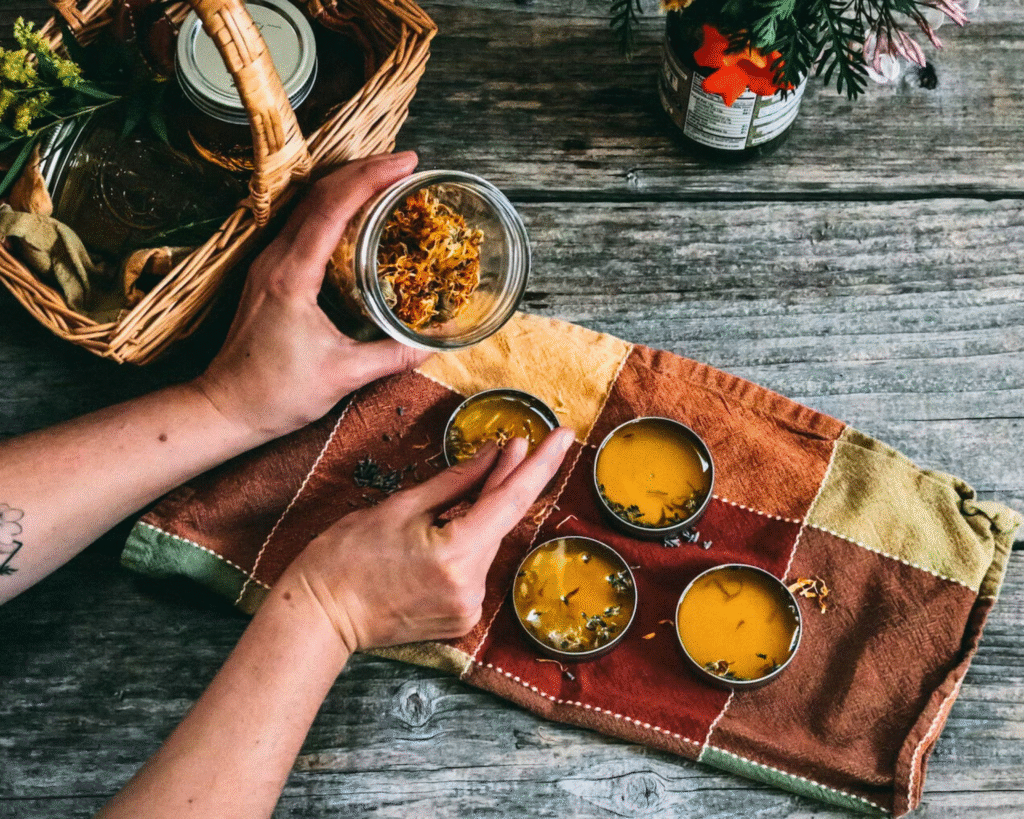
2. Natural Dyeing and Handcrafted Textiles: Colors from the Earth
In villages like Kutch (Gujarat) and Bagh (Madhya Pradesh), artisans still create natural dyes from indigo, turmeric, and madder. Fabrics are hand-printed using wooden blocks and dried under the sun in open courtyards. Guests can visit artisan homes, learn the dyeing process hands-on, and even take home personalized hand-printed fabrics. It’s a rare opportunity to witness craftsmanship that takes weeks of effort for a single masterpiece.
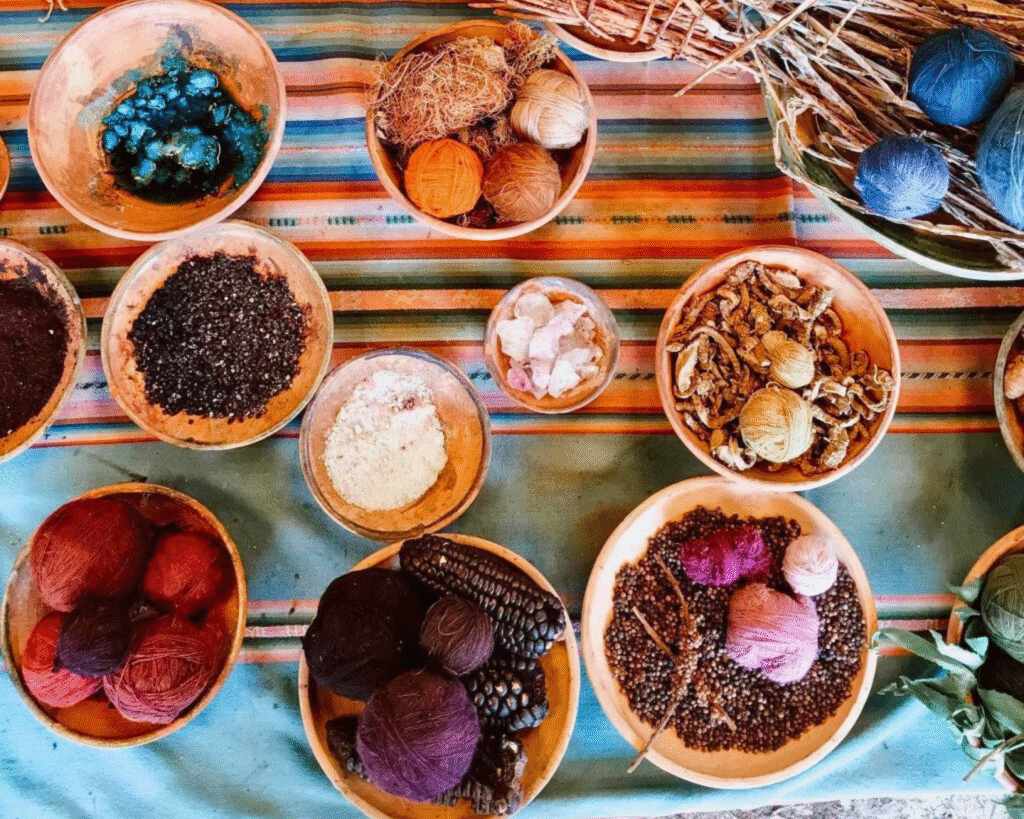
3. Traditional Cooking Methods: The Chulha and Beyond
While the world zips toward fast food, many Indian villages still honor slow cooking on mud stoves. Meals prepared on chulhas using local grains and fresh vegetables offer unmatched flavor and nutrition. Ebony Stay’s homestays feature cooking experiences where guests can roll rotis, stir spice pots, and enjoy meals under the stars, often with the host family sharing generational recipes.

4. Seasonal Rituals, Festivals, and Performing Arts
Village life thrives on seasonal rituals—from harvest dances to devotional storytelling. In regions like Bengal and Maharashtra, age-old festivals still see folk singers, dancers, and entire communities come alive in joy. Ebony Stay syncs its itineraries with local cultural calendars. Guests can witness or even participate in festivals like Baul Mela or Dhangar Gondhal, making for unforgettable cultural immersion.
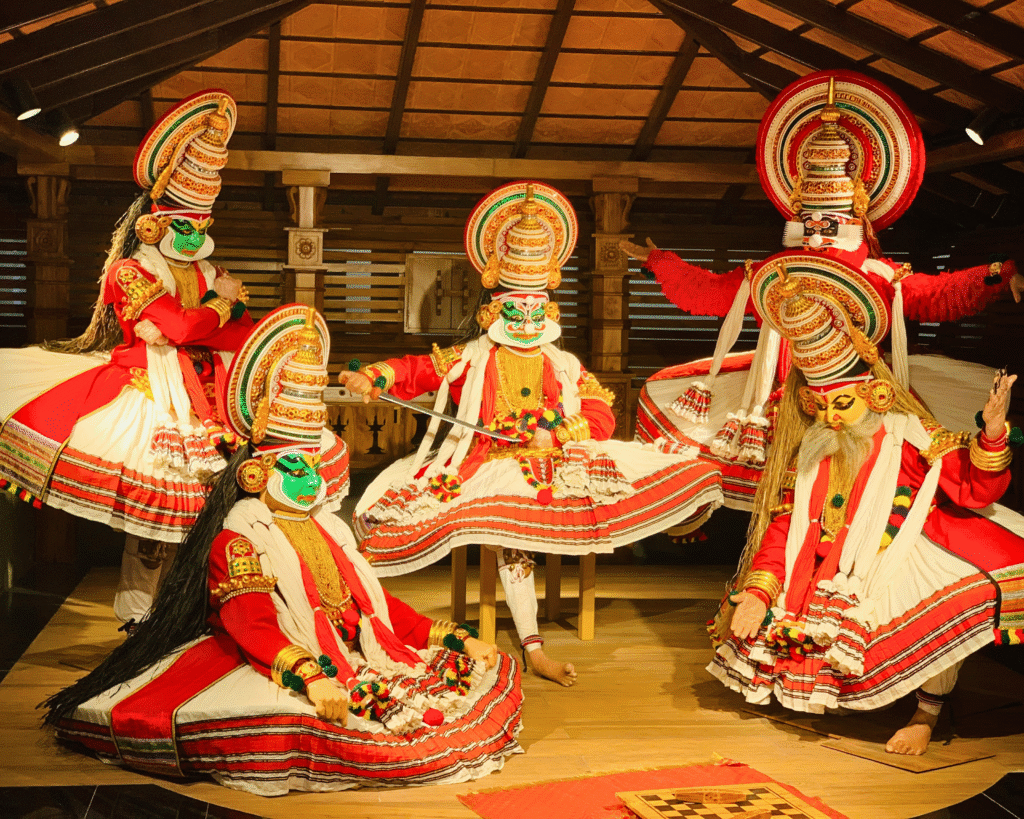
5. Water Wisdom: Sacred Wells, Stepwells, and Rituals of Respect
Villages in Rajasthan and Karnataka still maintain historic water structures like baoris and johads, not just as resources but as sacred lifelines. These are cleaned and worshipped during community rituals. Through Ebony Stay’s eco-conscious tours, travelers can explore these ingenious water systems and understand the spiritual respect villagers hold for nature’s gifts.
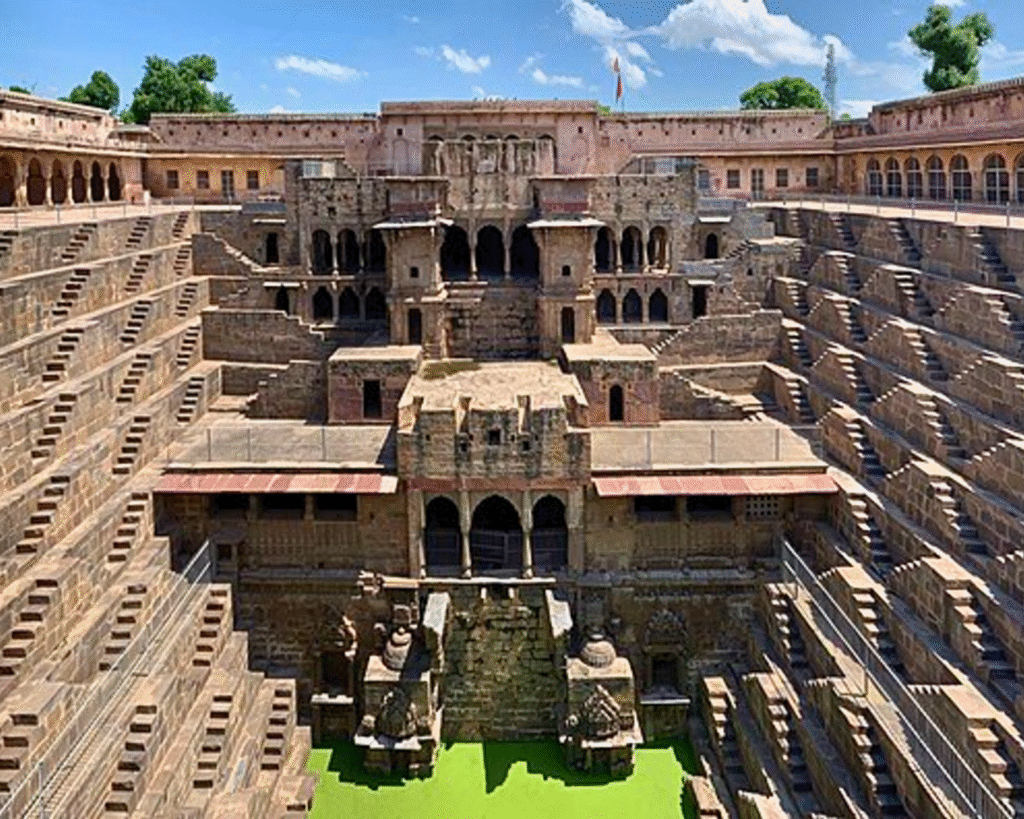
6. Sustainable Village Homes: Building with Mud, Bamboo, and Lime
From the earthquake-resistant Bhungas of Kutch to the flood-safe Chang Ghars of Assam, traditional homes are built using local, biodegradable materials. These homes are cool in summer, warm in winter, and blend perfectly with the surroundings. Ebony Stay’s accommodations include authentic village homes built with these methods, offering travelers a genuine taste of rural comfort and wisdom in design.
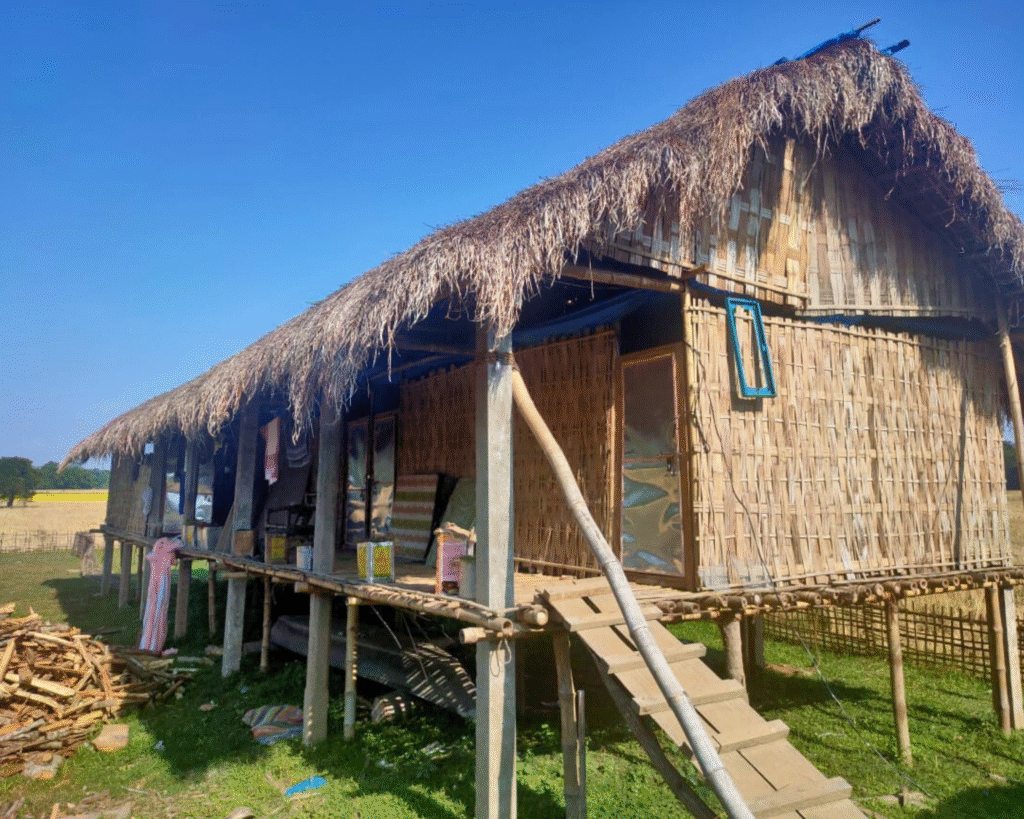
7. The Art of Oral Storytelling and Folklore
Villages across India still cherish oral storytelling. Whether it’s a myth retold by a grandmother or a traveling Bhopa performer narrating with scrolls, these stories preserve language, values, and legacy. Ebony Stay organizes storytelling sessions, often around the fire, where guests hear real village tales—some humorous, others haunting, all unforgettable.
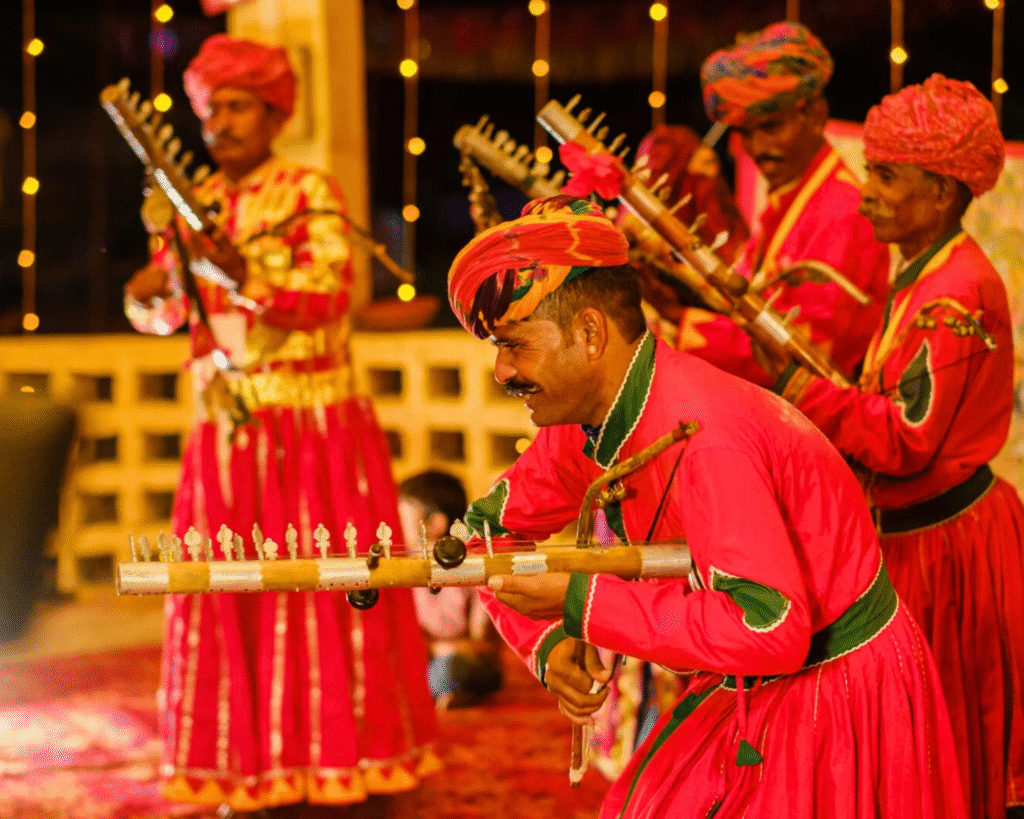
Why These Traditions Matter
These Lost Traditions of Indian Villages are not merely aesthetic or nostalgic—they are profound reminders of how humans can live in harmony with nature, in rhythm with the seasons, and close-knit communities. They teach us resilience, patience, and sustainability—values that modern life often forgets.
While rapid urbanization and climate change threaten many of these practices, they continue to survive through the passion of villagers and the interest of conscious travelers and platforms like Ebony Stay, which work to support these communities by inviting people to experience their way of life firsthand.
How Ebony Stay Helps Keep Traditions Alive
At Ebony Stay, we believe that travel is a powerful force for preservation. By connecting curious travelers with heritage-rich rural stays, we empower both the guests and the hosts. Each stay supports local artisans, healers, farmers, and elders who share their culture with pride. Whether it’s tying a Bandhani scarf, grinding millet by hand, or watching a folk drama unfold under a mango tree, you’re not just visiting a place, you’re becoming part of its story.
FAQs
Q1. What kind of experiences does Ebony Stay offer in Indian villages?
Ebony Stays curates village stays with experiences like folk healing, slow cooking, traditional arts, natural dyeing, and storytelling nights.
Q2. Are these stays comfortable for urban travelers?
Ebony Stays curates village stays with experiences like folk healing, slow cooking, traditional arts, natural dyeing, and storytelling nights.
Q3. Can I participate in traditional activities during my stay?
Absolutely. Guests can cook with hosts, join dyeing workshops, attend local festivals, or take part in village rituals hands-on
Q4. Are these experiences available year-round?
Most traditions are seasonal. Ebony Stay helps you choose the right village at the right time to match your interests and festivals.
Q5. Is this kind of travel sustainable?
Yes. Ebony Stay promotes slow, ethical travel where your visit directly supports the local economy and helps preserve culture and nature.

